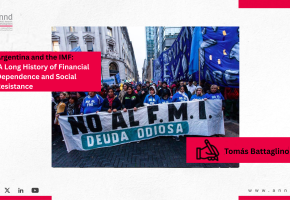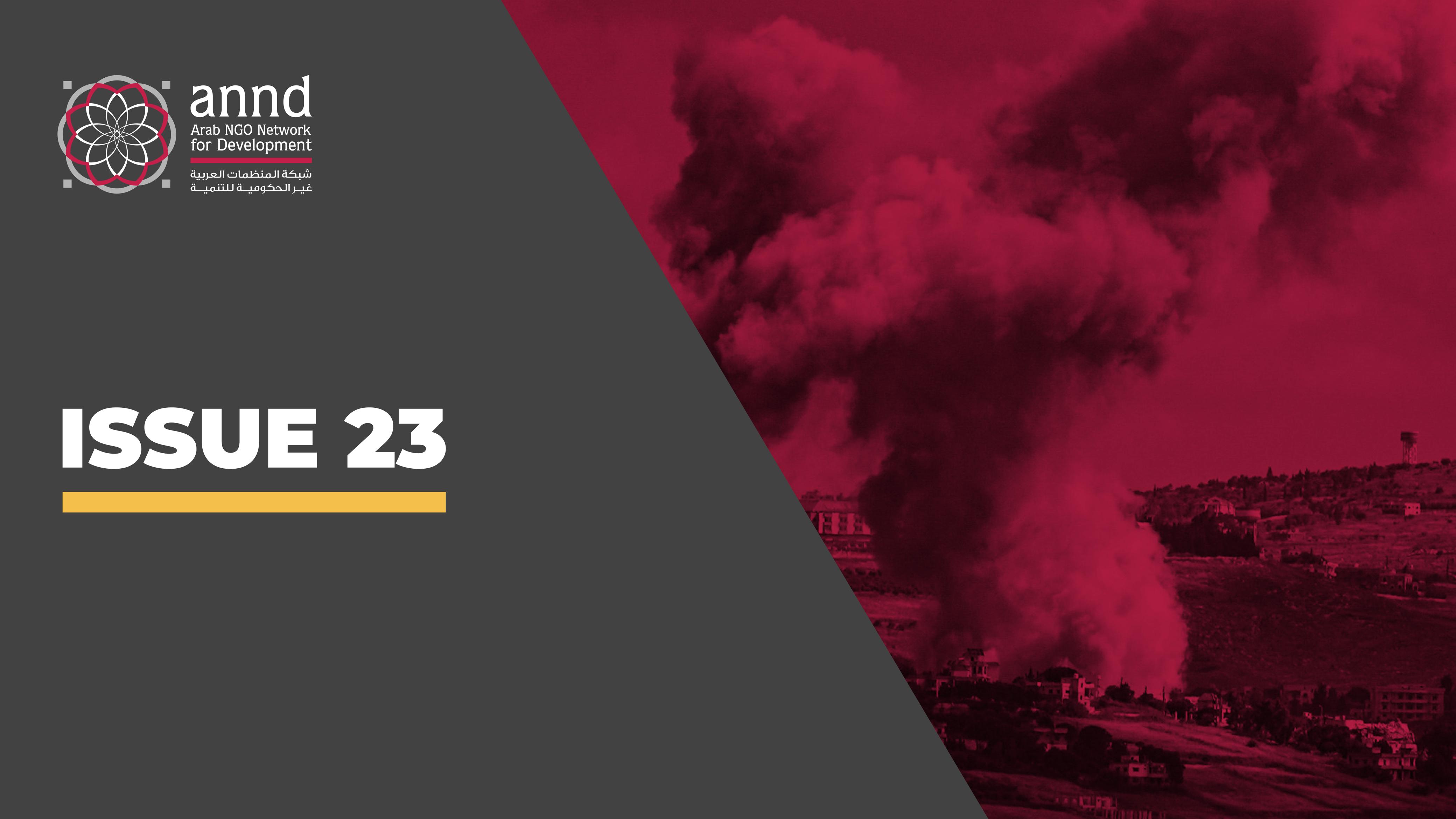
A Region on Fire
Issue 23 - October 19, 2024
Failed Ceasefire Efforts as War Escalates in Lebanon and Gaza
The United Nations Independent International Commission of Inquiry on the Occupied Palestinian Territory, including East Jerusalem, and Israel, in a report for all states and international organizations to work towards ending Israel’s occupation of Palestinian territories. Israel has long accused the UN Independent Commission of “systematic bias against Israel.”
UN experts affirmed that countries enabling Israel’s “illegal occupation” of Palestinian territories and assisting it despite warnings of potential war crimes and “genocide” in Gaza should be considered “complicit.” Navi Pillay, Head of the UN International Commissions of Inquiry, stated “Israel’s internationally wrongful acts give rise to state responsibility, not only for Israel but for all states.” She added, “The commission has always stated that the root cause of the protracted conflict and cycles of violence is the occupation.” Pillay emphasized that Israel must immediately develop a comprehensive plan to dismantle settlements, evacuate all settlers from the occupied land, return land, property, and natural resources to displaced Palestinians, and repeal all restrictive and discriminatory laws and policies.
The UN Resident Humanitarian Coordinator confirmed on Saturday that Palestinians are suffering “unspeakable horrors” in the besieged northern Gaza Strip. Acting Under-Secretary-General for Humanitarian Affairs and Emergency Relief Coordinator Joyce Msuya wrote on X, “Appalling news from northern Gaza where Palestinians continue to endure unspeakable horrors under siege by Israeli forces,” adding, “These atrocities must stop.”
UN Special Rapporteur on the Right to Food, Michael Fakhry, called for pressure from all members in the corridors of the United Nations and the General Assembly to impose sanctions on the Israeli occupation government and isolate it completely, unless it stops the genocide against the Palestinian people.
He affirmed that for the first time in modern history, a state is practicing starvation war as Israel is practicing against citizens in Gaza, referring to a report he prepared and submitted to the United Nations about Israel starving citizens in the Gaza Strip by closing all crossings in the Strip and obstructing the entry of humanitarian aid.
Fakhry exposed the false claims made by the Israeli occupation government to prevent food and medicine trucks from entering Gaza, stressing that these are mere lies and weak excuses to deny citizens their right to access food and medicine. He said, “Israel has initiated famine in Gaza by first destroying the food system, attacking fishermen, shepherds, and farmers before preventing the entry of food aid trucks.” He explained that the food system in Gaza has been suffering consecutive crises for decades, yet Israel has faced no external pressure to halt its blockade and siege of the Strip.
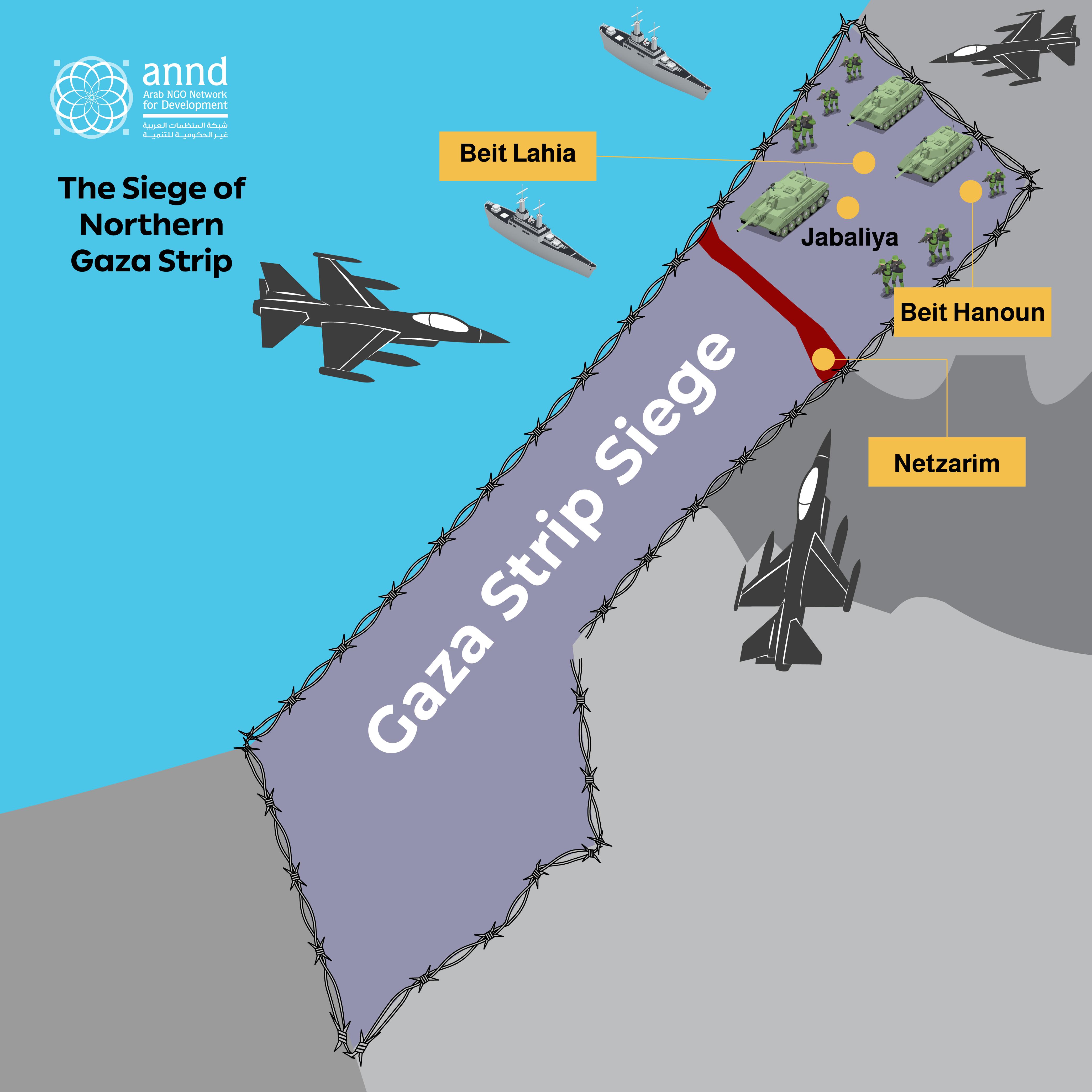
Developments in Gaza
Reports indicate that the Israeli army has cut off communication and internet networks in the northern Gaza Strip, preventing any access to information about the massacres Israel is committing as part of the ongoing ethnic cleansing and genocide.
Israel forced dozens of residents from Jabalia Camp in northern Gaza to evacuate amidst a military siege by tanks and armored vehicles on Saturday. Several Palestinians were wounded on Saturday evening by Israeli drone fire targeting a besieged shelter in Jabalia Camp, North Gaza.
The Gaza Ministry of Health reported that the death toll in Gaza has risen to 42,519, the majority being women and children, and the number of injuries has reached 99,637. Thousands of victims remain trapped under the rubble since the Israeli occupation began its assault on October 7, 2023. The ministry also stated that Israeli forces committed three massacres in the past 24 hours, resulting in the death of 19 civilians and injuring 91 others.
The Director-General of Gaza’s hospitals, Mohammad Zaqout, said the Israeli army is deliberately and repeatedly bombing hospitals in the northern Gaza Strip, preventing medicine, food, and fuel from reaching them, worsening the humanitarian situation. He announced that the Indonesian Hospital was targeted this morning, along with Al-Awda and Kamal Adwan hospitals, during the aggression. He called for an end to the aggression on civilians in northern Gaza and for protection to be provided to hospitals and medical staff. Zaqout also urged international organizations to pressure Israel to ensure the delivery of medicine, food, and fuel to hospitals in the north.
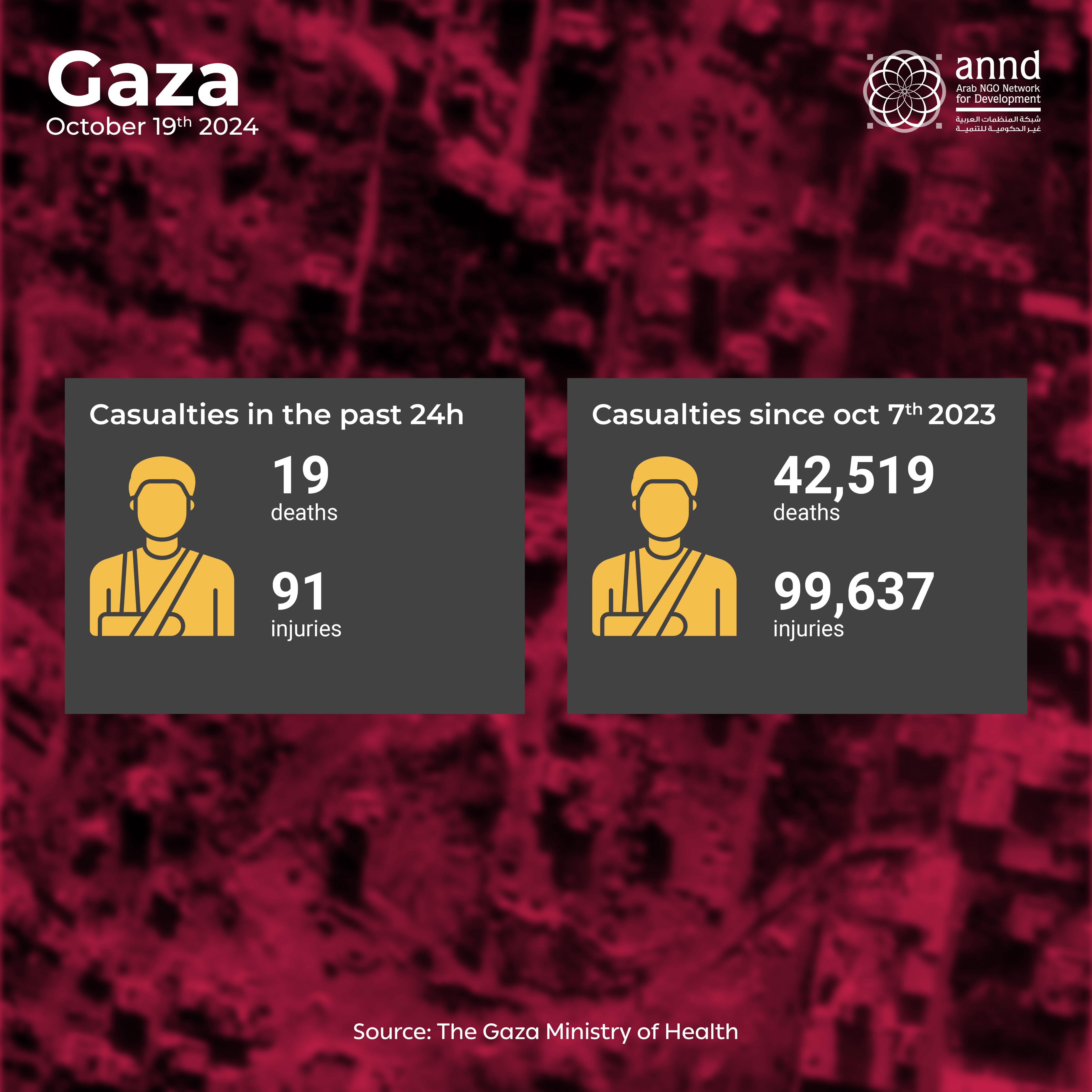
Battlefield Developments in Lebanon
A drone launched from Lebanon targeted the residence of Israeli Prime Minister Benjamin Netanyahu in Caesarea, north of Tel Aviv. Netanyahu was not present at the time. His office stated that the agents of Iran had attempted to assassinate him and his wife. Netanyahu later declared, “Nothing will deter us, and we will continue to pursue our objectives until the end.” Israeli media reported, citing sources close to Netanyahu, that Israel would retaliate for the assassination attempt. In the evening, Iran’s delegation to the UN denied responsibility for the attack on Netanyahu’s residence, stating that Hezbollah was responsible for the attack on Caesarea.
Hezbollah heavily bombed areas in northern Israel, targeting settlements and villages as far as Safed, Acre, and Haifa, as well as the Golan Heights and Galilee. Israeli media reported that over one million people sought refuge in shelters. The Israeli army intensified its airstrikes on villages in southern Lebanon, particularly the city of Tyre and the Bekaa region, including villages in Shtoura and Deir al-Ahmar for the first time. The heavy bombardment also hit Beirut’s southern suburbs with 15 airstrikes over two hours, causing massive destruction after days of tense calm. Residents were warned to evacuate an hour before the strikes. Afterward, an Israeli army spokesperson stated that the strikes targeted Hezbollah’s security and military sites.
An Israeli drone targeted a car on the Jounieh highway, north of Beirut, killing a Hezbollah military commander and his wife, whom the Imam Khomeini Center mourned, as she held Iranian citizenship.
Hezbollah’s combat groups in southern Lebanon repelled attempts by the Israeli army to advance on all fronts, inflicting several casualties, according to Hezbollah’s military media.
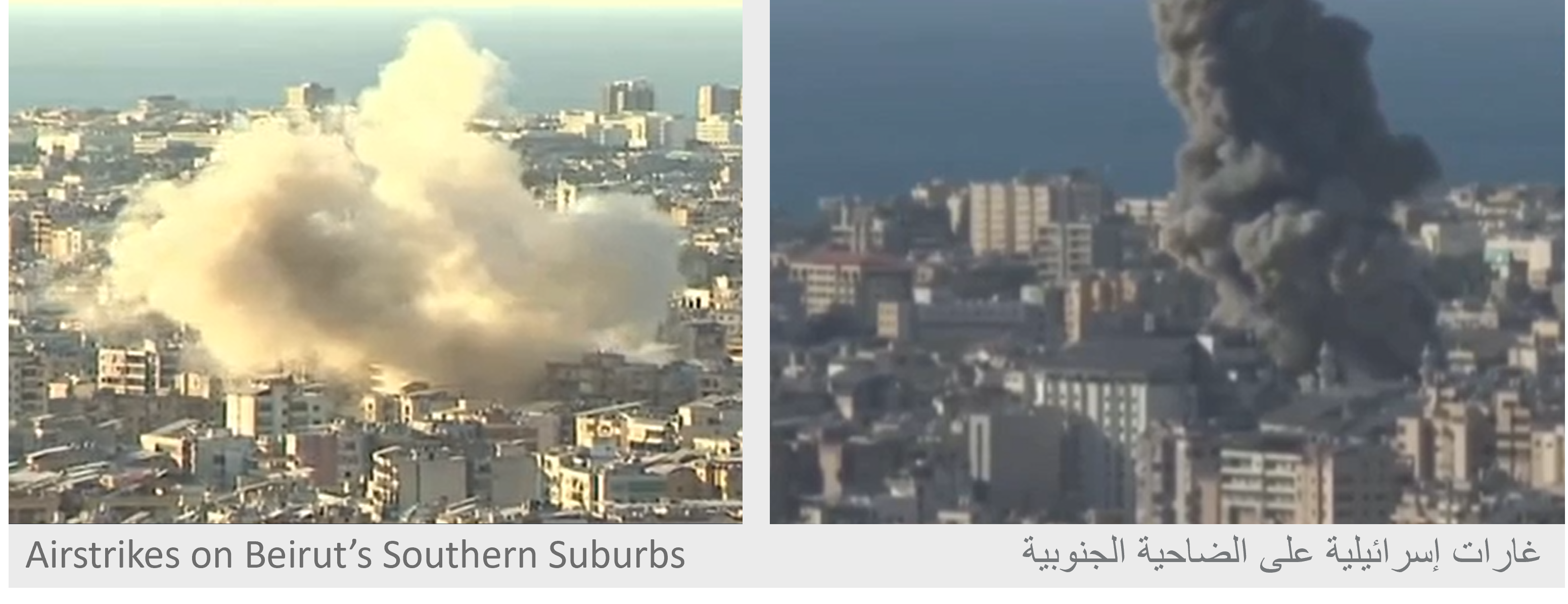
Political Positions in Lebanon
Preparations are underway at the official Lebanese level for the conference organized by France to support Lebanon. The conference will address three main areas: providing aid and supporting humanitarian response efforts, supporting and empowering the Lebanese Armed Forces to play a key role in southern Lebanon, and focusing on encouraging internal Lebanese dialogue to promote “civil peace” and elect a president. The Speaker of Parliament confirmed that the conference will discuss aid and political solutions for Lebanon.
Nicolas Chammas, the General Secretary of the Lebanese Economic Organizations, estimated that the direct economic cost of the war has reached $10 billion, and the duration of the resilience of the private sector and economic institutions is measured in days and weeks only.
Humanitarian Response in Lebanon
The Governor of the North, Judge Ramzi Nohra, announced that there are 130 shelters in the northern region. He revealed that the governorate has received around 1,000 displaced persons distributed across 114 shelters to date, emphasizing that the shelters are full, making it difficult to accommodate more people.
Over the past 24 hours, 82 airstrikes and shelling incidents were recorded in various parts of Lebanon, mostly concentrated in the south and Nabatieh, bringing the total number of attacks since the start of the aggression to 10,415 airstrikes.
The Lebanese Ministry of Health reported that in the past 24 hours, 30 people were killed, and 135 were injured, bringing the total death toll since the start of the aggression to 2,448, with 11,471 injured.
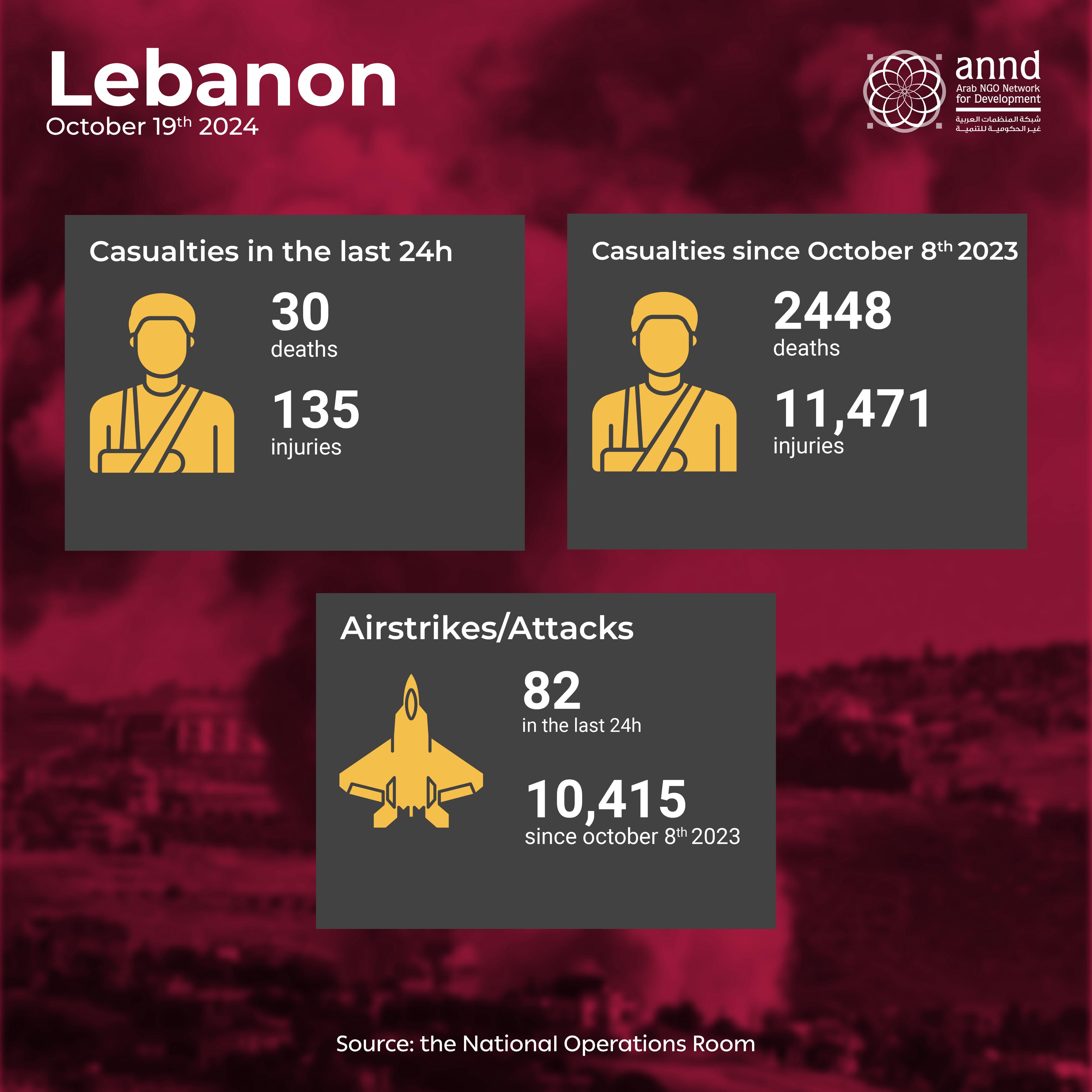
The displacement from areas under daily attacks to safer zones continues. The total number of displaced persons registered in official shelters has reached 191,912 (44,806 families) in 1,094 accredited shelters, with 901 of them at full capacity. The total number of displaced persons exceeds 1.3 million.
From September 23 to October 19, 2024, the General Security recorded the crossing of 337,972 Syrian nationals and 138,005 Lebanese nationals into Syrian territory. The Iraqi Passport and Immigration Department reported that 11,000 Lebanese families have entered Iraq.
The Minister of Public Health announced that the World Bank responded to Lebanon’s request for a grant from the Pandemic Fund to support the epidemiological surveillance program and the central laboratory to strengthen the Lebanese healthcare system.
UNICEF announced its response to Lebanon’s escalating crisis. The “Education Cannot Wait” initiative and its strategic partners announced an additional $1.5 million in funding to support safe and inclusive access to quality education for boys and girls affected by the conflict.
The Minister of Education, Abbas Halabi, announced that the ministry is working on securing shelters for the displaced, other than schools, to ensure the continuation of the academic year.
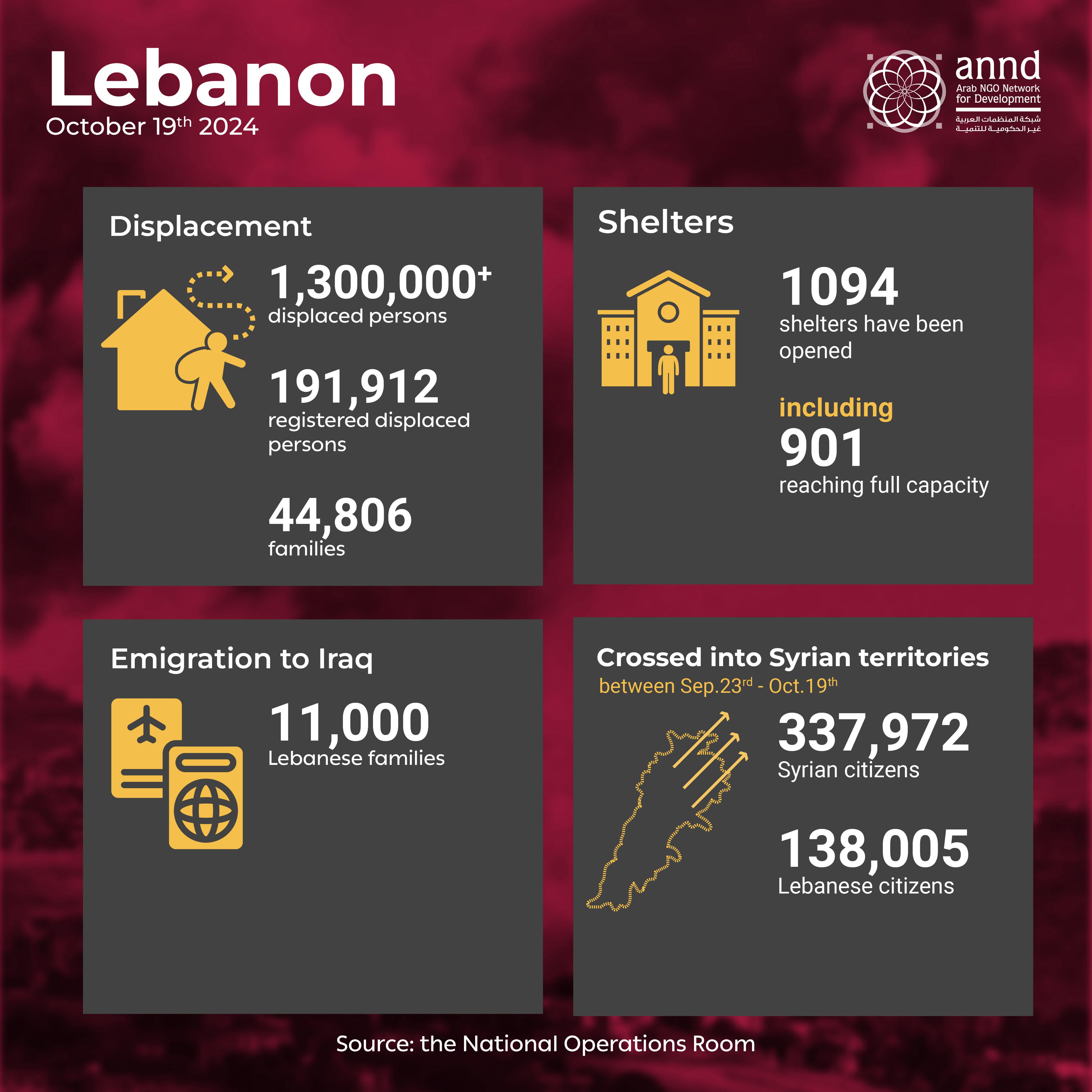
International Positions
At a summit that brought together U.S. President Biden, German Chancellor Scholz, French President Macron, and British Prime Minister Keir, the leaders agreed on the need to prevent Iran from expanding the war in the Middle East and emphasized holding Iran accountable for escalating tensions. They stressed the importance of implementing UN Resolution 1701 and discussed a framework to reach a ceasefire that would allow residents of northern Israel and southern Lebanon to return to their homes and ensure stability along the Blue Line, which separates Lebanon and Israel.
The G7 defense ministers highlighted the importance of supporting the UN peacekeeping forces in southern Lebanon and the Lebanese army in maintaining stability and security in Lebanon. They also called on Iran to stop providing support to Hamas, Hezbollah, and the Houthis.
In an interview with the Lebanese TV channel MTV, former U.S. President Donald Trump stated that he would work to achieve peace in the Middle East and support Lebanon and the Lebanese people will end up happy.
David Schenker, a Middle East policy advisor at the U.S. Department of State, predicted that Israel’s response to Iran would be very strong to prevent further provocations, expecting Israel to demonstrate significant and practical capabilities.
The U.S. Department of State announced an upcoming visit by Secretary of State Antony Blinken to the Middle East, starting in Amman, and including stops in Lebanon and Israel, in an attempt to reach a ceasefire agreement.
U.S. Defense Secretary Lloyd Austin stated on Saturday that the U.S. is ready to assist Lebanon in implementing Resolution 1701 and called on Israel to reduce its airstrikes in and around Beirut. He expressed concern over the high civilian casualty numbers and said that the U.S. would like to see Israel reduce its strikes in Beirut and surrounding areas and shift toward negotiations to allow civilians on both sides to return to their homes.
EU Foreign Policy Chief Josep Borrell emphasized the need to reassess the role of UNIFIL, but stated that the priority now is efforts toward a ceasefire. He also remarked that the humanitarian situation in Gaza has reached unprecedented levels of severity.
In a statement, the Jordanian Prime Minister said “While all Jordanians stand in solidarity with the Palestinian people, incitement that threatens the security of the nation and its citizens is a different thing completely and will not be accepted in any form and from whoever party”.
The Secretary-General of the Arab League affirmed that the Lebanese government is the only entity authorized to negotiate on behalf of Lebanon for a ceasefire, supporting the statement made by the Lebanese Prime Minister in response to comments by the Iranian Shura Council speaker to the French newspaper Le Figaro.
Iranian Foreign Minister Abbas Araghchi, during his meeting with Turkish President Erdogan, emphasized the need for an urgent international action to stop the genocide in Gaza and Lebanon.
UNIFIL spokesperson Andrea Tenenti told Al-Hurra TV on Saturday that the destruction affecting many towns and villages in southern Lebanon is “shocking and horrific,” expressing concern about the proximity of both sides of the conflict (Hezbollah and Israeli forces) to UNIFIL positions. He noted that “the current destruction is much greater than what occurred in 2006.” Tenenti also pointed out that several UNIFIL bases and positions, particularly in the town of Naqoura, had been subjected to bombings and attacks. He emphasized that UNIFIL’s presence in its positions is based on approval from all members of the UN Security Council, making its presence highly important.
Recent publications
